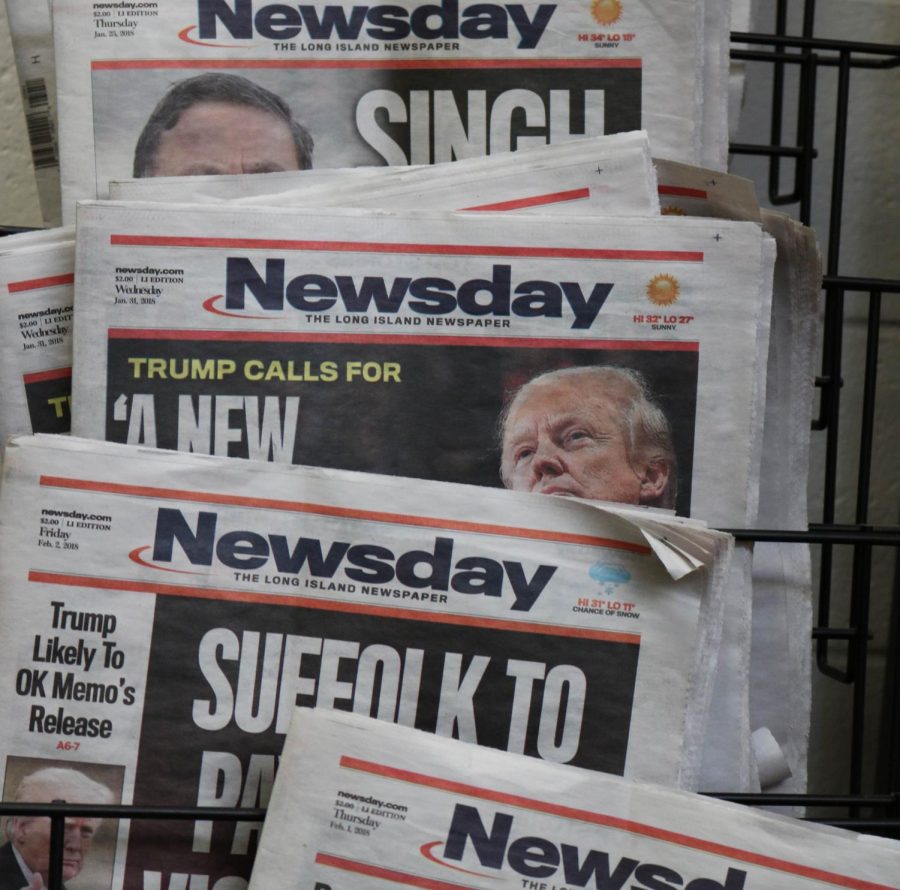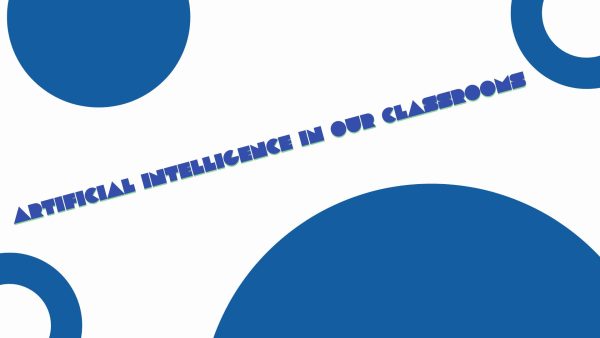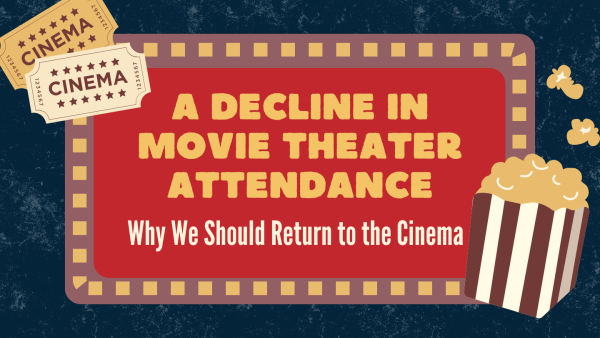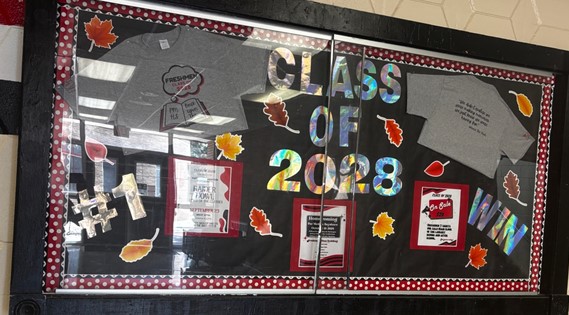What Direction Will the Future of Journalism Take?
Look beyond the Fake News epidemic.
Photo by Stella Wilkins
Newsstand in the PMHS library.
Once upon a time, in an age with no smart-phones, no computer, and most importantly- no internet, people did not have the privilege of being able to have instant access to a wealth of information in mere seconds. In a world that seems so foreign to us, all people were able to rely upon was the good old print of a newspaper and the trust of their local reporters to provide to them updates on what is happening both local and more broad. Back then, it was a simpler time, when the news was considered to be one of the fundamental instruments in a democratic society: people could speak their minds, they were given facts to form their own opinions, and it was a way to make the world more transparent. Here, in the US, the founding fathers found the press so vital that the very first amendment states you cannot infringe on the freedom of the press. Well, just like with anything times have changed. What was once held in such high regard is now the subject for criticism in the highest degree: manipulating facts, leaning to one political group, bribery, and simply straight up lies. While some of it is fair criticism, the entire idea of “fake news” has begun to take a life of its own. Synonymous with President Donald Trump, it only seems fitting for him to hold a Fake News Award Ceremony, for him to hand out the winners of his categories. The winners and losers, that is not what is important here, what is, is the precedent set and what it tells us about the state journalism is in today.
If you are looking for a piece to focus on the shredding of Trump and this whole event than I assure you that you will be disappointed. In the world of the news we are here to discuss the facts and what they implicate, not to go on some rant about our political views and how we either love this or hate it. At the end of the day, President Trump sat down, took the time out of his schedule to create a segment to hand out sardonic awards and let the whole world see it- while being a sitting president. If we look back at the history of the United States, many presidents have been involved in situations that would be considered controversial and unprofessional for the time period: must we forget Andrew Jackson and the tearing down of National Bank? Or, how about Abraham Lincoln’s removal of the writ of Habeas Corpus? As we can see, presidents always seem to be lightning rods for controversy, it is what the consequences are that determine if the action was justified or not. Understanding this, the question is now raised what does this mean for the reputation of journalism in the long-run? The short-answer, it is too soon to make a judgment, the longer and more complex one is quite melancholy: the once highly respected and dignified field of journalism continues to be muddied and considered highly suspect.
Think about our short history as a country: the Revolution, the Spanish-American War, Watergate, and all the events in between up to now, notice, what is the one constant? Not the president, not the congress or the individuals, but the presence of media and reporting to us, the people, the facts and documents that without them we would never be given. Oscar Wilde summed it up best: “in America the President reigns for four years, and Journalism governs forever and ever.” Both the sentiment and deeper meaning of this are profound and does have inherently factual proof to back it. Think to yourself for a moment: what if we never had the media in our lives? What truth would we actually know and what would we be left not knowing; in fact, it becomes scary to think how ignorant we would be rendered and easily manipulated we could become, almost as if we live in an Orwellian society. Does this mean that the news is without flaw? Absolutely not, like any profession, there are some bad eggs and questionable decisions that leave a long lasting stigma, it is unfortunately just reality. However, the Fake News Awards is symbolic of this lost understanding of the world of the news: with everyone so cynical and left confused on what to believe it has tarnished the legacy of such an important democratic system.
Whether you take his side or not it is not the main factor to consider. For those reading, I implore you to look beyond what you see in front of you, and to look deeper into the context of the event and what it means for the likes of you and me and future generations to come. The future of journalism has never looked so bright and so dark at the same time, a paradox I know. Yet, it is up to us to make the difference, to take the facts for the lies and bias and to use our own minds to formulate our opinions. This is the reality of the news, and we can either let it continue- or make a change.

Grade 12
“Always dream and shoot higher than you know you can do. Don’t
bother just to be better than your contemporaries or predecessors. Try
to...






